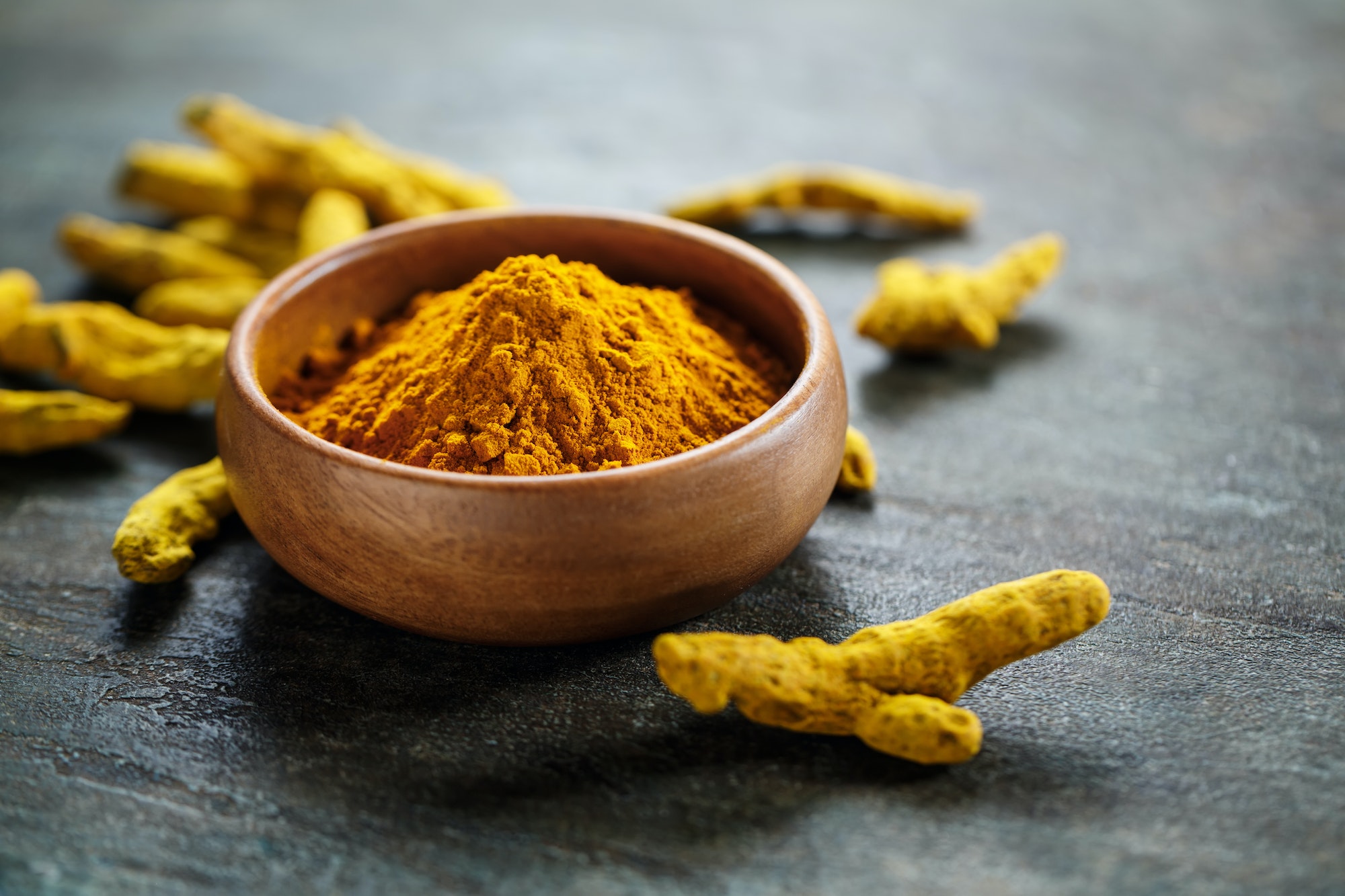Turmeric, a bright yellow spice containing curcumin, is native to India and Southeast Asia and it is a key ingredient in Indian and Asian dishes. It is a principal ingredient in curry and has also been used in mustard, pickles, relishes, cheeses and even sweet dishes and a hot tea called “golden milk.”
What is less well known is that is has been in use for thousands of years in Ayurvedic medicine in India and it has been used in Unani, Chinese medicine. Like many spices, turmeric is prized for its healing properties. In US News, Reema Kanda, a registered dietitian at the Hoag Orthopedic Institute in Irvine, CA says, said these health practices “have used turmeric for the treatment of pain and inflammatory disorders” for centuries.
In Ayurvedic medicine, it has been widely used and thought to act as an antiviral, antibacterial, and antiparasitic. It has long been used to help with diabetes, pain, rheumatism, osteoarthritis, memory, and skin conditions like eczema.
In an article by Dawn MacKeen in the NY Times (Oct. 17, 2019), Anupama Kizhakkeveettil, a board member of the National Ayurvedic Medical Association said that turmeric is “one of the most important herbs. We use it for so many different conditions, it’s a time-tested herb.”
Many other doctors and nurses praise the use of turmeric. World-renowned for integrative medicine and founding The Chopra Foundation and co-founding The Chopra Center for Wellbeing, Dr. Deepak Chopra says, “Turmeric is a pharmacy unto itself.”
Like all food and medicine, turmeric is not recommended for everyone. It can make gallbladder problems worse; it can possibly slow blood clotting; it can cause stomach upset and for those with diabetes; it can make blood sugar too low.
But for others, turmeric has properties to improve health. What are the benefits of turmeric? It has been used for many health problems including the following:
- It can reduce the symptoms of hay fever such as sneezing, itching and runny noses.
- It can lower high levels of cholesterol and improve the ability of the blood vessels to repair themselves and possibly reduce the risk of blood clots and heart disease.
- It can reduce inflammations. Chronic inflammation causes many diseases and problems such as tendonitis or golfers and tennis elbow.
In addition, it has benefits for other health issues. “Turmeric has natural anti-inflammatory compounds called curcuminoids, and these curcuminoids have been associated with a positive effect on various diseases,” says Anya Guy, a Mayo Clinic dietitian. Those diseases include Type 2 diabetes, obesity, inflammatory bowel disease and even cancer.
In 2018, the Mayo Clinic News Network said, “A recent study published in the Proceedings of the National Academy of Sciences shows curcumin, an active ingredient in turmeric, effectively kills certain cancer cells.”
Turmeric is sometimes credited with lessening the threat of breast cancer, protecting the skin against UVA damage, and increasing memory skills and possibly fighting Alzheimer’s.
Turmeric has another plus; it is a good source of Vitamin C, manganese, iron and potassium – all of which lessen the stress and wear-and-tear on our bodies. And who doesn’t need that?
It’s no wonder that a report from the Nutrition Business Journal in 2018 stated it is one of the fastest-growing dietary supplements.




